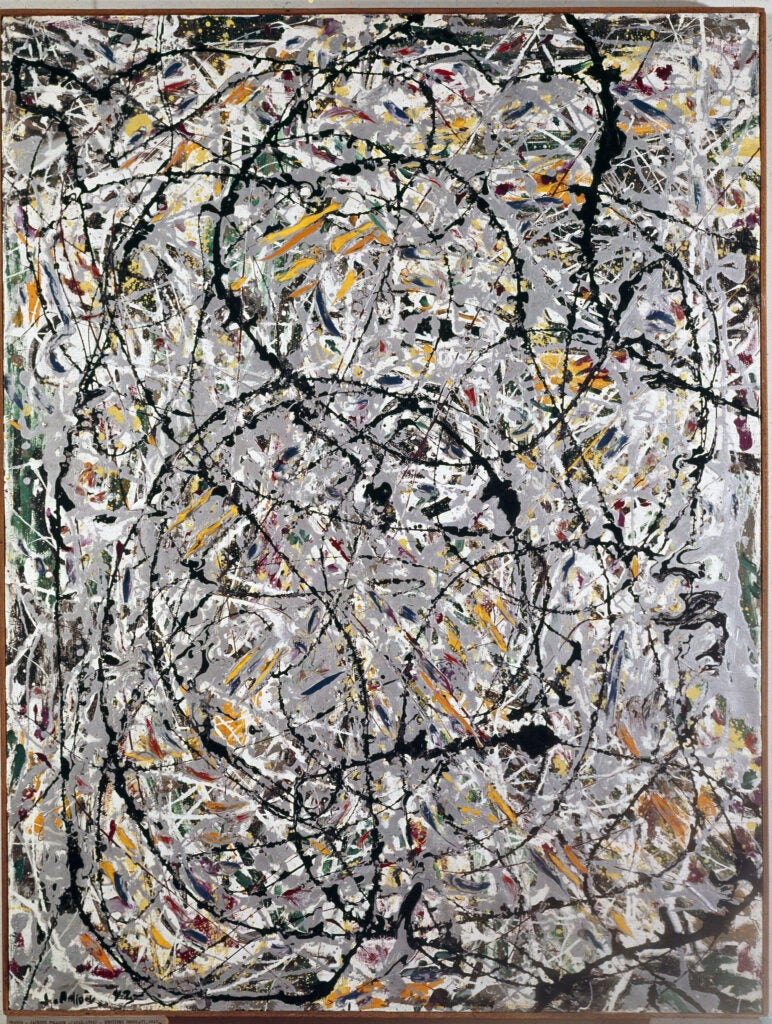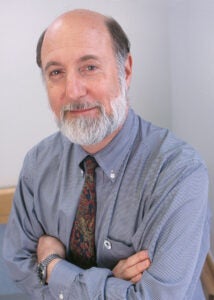The Michael J. Weber Symposium was founded to honor the life and accomplishments of the former director of the UVA Cancer Center and renowned scientist, Dr. Michael Weber. The goal of this annual symposium is to bring together internationally renowned cancer researchers and clinicians to present their findings on a timely area of cancer research.

The University of Virginia Cancer Center
 The inaugural Michael J. Weber Symposium to honor Dr. Weber’s life and achievements will be held virtually on October 15, 2021. The central theme will be “Cancer Signaling”.
The inaugural Michael J. Weber Symposium to honor Dr. Weber’s life and achievements will be held virtually on October 15, 2021. The central theme will be “Cancer Signaling”.
“Undulating Paths” by Jackson Pollock serves as visual inspiration for the conference. Dr. Weber greatly appreciated the arts and this piece artfully suggests signaling pathways, the theme of the first symposium.
Jackson Pollock, Undulating Paths/Watery Paths, 1947. Oil on canvas.© 2021 The Pollock-Krasner Foundation / Artists Rights Society (ARS), New York
Featuring the following world-class scientists and clinicians:
New York Presbyterian/Weill Cornell Medical School
David B. Solit, MD
Memorial Sloan Kettering Cancer Center
Eileen White, PhD
Rutgers Cancer Institute of New Jersey
UCLA
Ashani Weeraratna, PhD
Johns Hopkins University
Learn more about the 2021 Michael J. Weber Symposium
About Dr. Michael J. Weber
Dr. Michael J. Weber (1942-2021) was a preeminent scientist and cancer researcher, a valued colleague, leader, and mentor at the University of Virginia (UVA). He made seminal and internationally recognized contributions to our understanding of the fundamental molecular basis of cancer. Dr. Weber’s research focused on understanding cancer cell signaling, a nascent field at the time he initiated his studies, and how signaling can best be exploited for the treatment of prostate cancer, bladder cancer, melanoma and leukemias. He investigated the interactions between mutated oncogenes and developed new cancer therapies and therapeutic approaches. As a pioneer in team science, Dr. Weber was a major contributor to the discovery and analysis of the MAP Kinase pathway, including the identification of the activating sites of phosphorylation, the isolation of the first full-length clone, the demonstration of MEK enzymatic activity, the demonstration that oncogenic Ras could activate Raf, the demonstration that B-Raf could activate MEK, the generation of an antibody that recognizes the active state of the kinase and pioneering its use to evaluate cancer patients, and the definitive demonstration that Ras signaling could activate the androgen receptor. Dr. Weber is among the top 1% most-cited authors in the areas of Molecular Biology & Genetics; Biology & Biochemistry. As leader of the UVA Cancer Center from 2000 to 2013, he advocated that advances in the prevention and treatment of cancer required the integration of basic and translational research, a robust program of clinical trials, and compassionate patient care. His passion for science, and commitment to translational cancer research is best illustrated by his continued active and productive research work as Professor Emeritus. During this time, his research on compensatory survival signaling in chronic lymphocytic leukemia and mantle cell lymphoma led to the discovery of a novel drug combination therapy and a clinical trial for patients with those cancers.

Comments